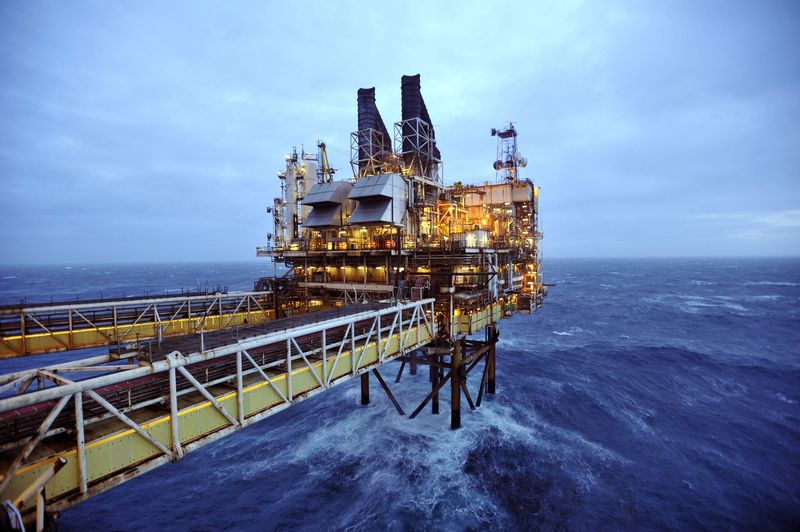OSLO (Reuters) - Norway's Aker BP (OL:AKERBP), partly owned by oil major BP (L:BP), beat quarterly earnings forecasts on Monday, helped by record output and higher oil prices, and said it may drill more wells this year than previously planned.
The company, controlled by a Norwegian billionaire Kjell Inge Roekke, is focusing more on developing its existing business after growing via a series of acquisitions, including last year’s purchase of Hess (N:HES) assets for $2 billion (1.5 billion pounds).
Thanks to the latest purchase, which included a stake in the Valhall field, the company reported record first-quarter production of 158,600 barrels of oil equivalents per day (boepd), up from 145,300 boepd in the same quarter a year ago.
Its January-March operating profit (EBIT) was $472 million, compared with the average forecast of $449 million in a Reuters poll of analysts, and $273 million a year ago.
The company repeated plans to increase full-year dividends by $100 million in 2019 from $450 million this year.
At 1000 GMT, Aker BP shares were up 6.4 percent at 282 Norwegian crowns.
Chief Executive Karl Johnny Hersvik said the company still saw "significant and interesting" acquisition targets on the Norwegian continental shelf, although the competition had increased since a year ago.
Meanwhile, the company will step efforts to find resources itself by drilling 12-14 exploration wells this year, up from the previously planned 12.
Aker BP said it had postponed two wells in the Barents Sea until 2019, but would drill more wells around its recent 30-60 million boe Frosk discovery south of Alvheim field.
The company repeated its financial guidance for 2018, including a plan to spend $350 million on exploration, but saw rates in longer-term rig contracts going up.
"There is a bit of cost inflation ... The long-end of those contracts are turning upwards," Hersvik said.
DISPUTE WITH STATOIL
Aker BP expects to resolve its dispute with majority state-owned Statoil (OL:STL) over development of the so-called North of Alvheim and Askja-Krafla (NOAKA) area in the North Sea by the end of 2018.
Aker BP wants to develop a group of discoveries containing about 500 million boe by using a manned processing platform, combined with offshore wind turbines to provide power, while Statoil wants to have two unmanned processing platforms.
The companies have to get an approval from the government for the project, which could be the largest development off Norway after Statoil's Johan Castberg Arctic oilfield.
Consultancy Wood Mackenzie said in March it expected start-up of the NOAKA project to be delayed by one year until 2023 due to the dispute.
